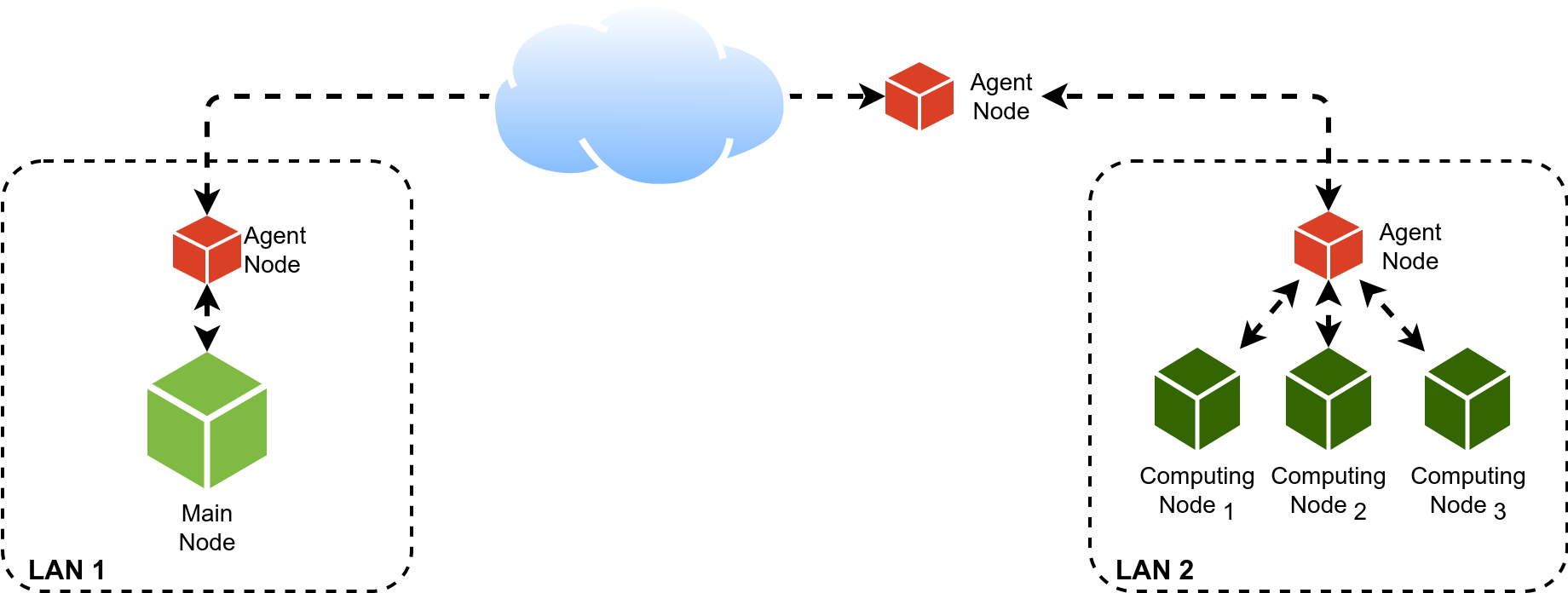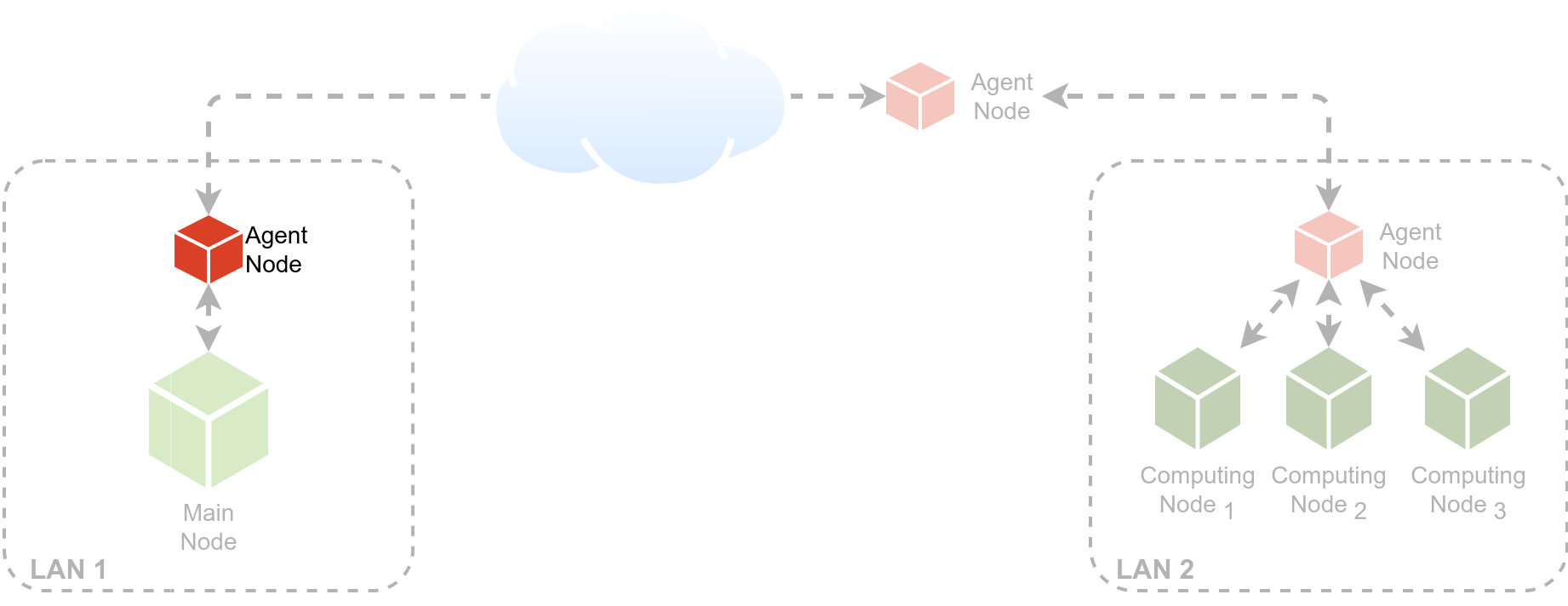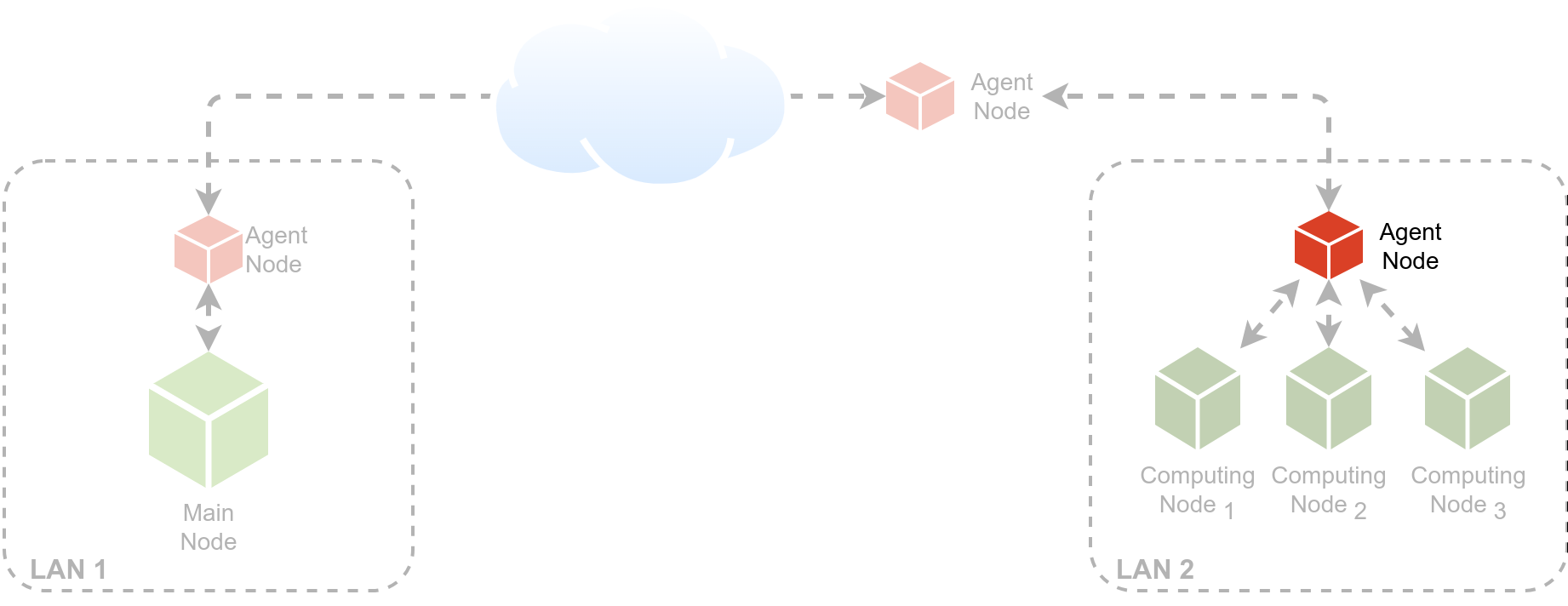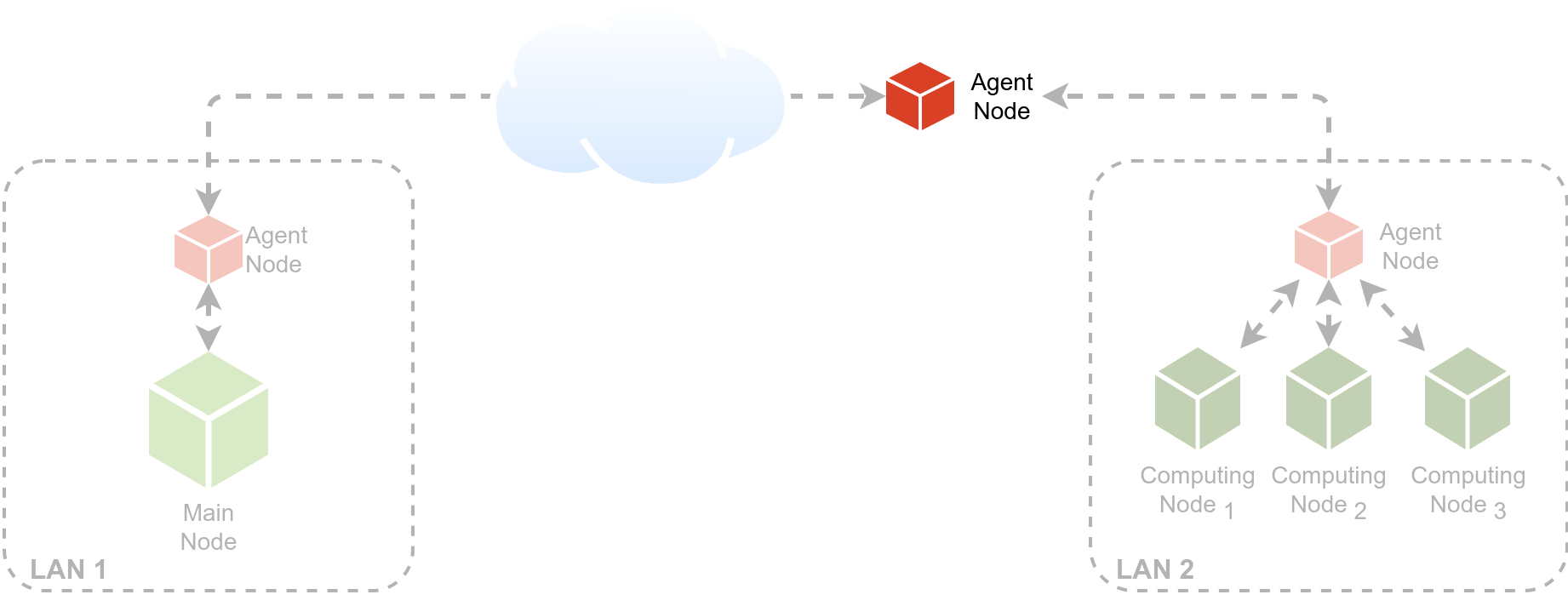2.2.1. Agent Node¶
The Agent Node relays on the eProsima DDS Router. This tool is developed and maintained by eProsima which enables the connection of distributed DDS networks. DDS entities such as publishers and subscribers deployed in one geographic location and using a dedicated local network will be able to communicate with other DDS entities deployed in different geographic areas on their own dedicated local networks as if they were all on the same network.
This node is in charge of communicating a local node or AML-IP cluster with the rest of the network in WANs. It centralizes the WAN discovery and communication, i.e. it is the bridge for all the nodes in their LANs with the rest of the AML-IP components.

2.2.1.1. Client Node¶
This node acts as a communication client that connects to a Server Node.
2.2.1.1.1. Steps¶
Create a new
eprosima::ddspipe::participants::types::Addressobject with the address port, external address port, IP address and transport protocol.Instantiate the
ClientNodecreating an object of such class with a name, a connection address and a domain.Wait until
Ctrl+C.
// Create connection address
auto connection_address = eprosima::ddspipe::participants::types::Address(
12121,
12121,
"localhost",
eprosima::ddspipe::participants::types::TransportProtocol::udp);
// Create Client Node
eprosima::amlip::node::agent::ClientNode Client_node(
"CppClientNode_Manual",
{ connection_address },
100);
// Wait until Ctrl+C
eprosima::utils::event::SignalEventHandler<eprosima::utils::event::Signal::sigint> sigint_handler;
sigint_handler.wait_for_event();
# Create connection address
connection_address = Address(
port=12121,
external_port=12121,
domain='localhost',
transport_protocol=TransportProtocol_udp)
# Create Client Node
ClientNode(
name='PyTestClientNode',
connection_addresses=[connection_address],
domain=100)
# Wait until Ctrl+C
def handler(signum, frame):
pass
signal.signal(signal.SIGINT, handler)
signal.pause()
2.2.1.2. Server Node¶
This node acts as a communication server, waiting for other Client Nodes to connect to it.
2.2.1.2.1. Steps¶
Create a new
eprosima::ddspipe::participants::types::Addressobject with the address port, external address port, IP address and transport protocol.Instantiate the
ServerNodecreating an object of such class with a name, a listening address and a domain.Wait until
Ctrl+C.
// Create listening address
auto listening_address = eprosima::ddspipe::participants::types::Address(
12121,
12121,
"localhost",
eprosima::ddspipe::participants::types::TransportProtocol::udp);
// Create Server Node
eprosima::amlip::node::agent::ServerNode Client_node(
"CppServerNode_Manual",
{ listening_address },
200);
// Wait until Ctrl+C
eprosima::utils::event::SignalEventHandler<eprosima::utils::event::Signal::sigint> sigint_handler;
sigint_handler.wait_for_event();
# Create listening address
listening_address = Address(
port=12121,
external_port=12121,
domain='localhost',
transport_protocol=TransportProtocol_udp)
# Create Server Node
ServerNode(
name='PyTestServerNode',
listening_addresses=[listening_address],
domain=200)
# Wait until Ctrl+C
def handler(signum, frame):
pass
signal.signal(signal.SIGINT, handler)
signal.pause()
2.2.1.3. Repeater Node¶
A Repeater Node can be used to repeat messages between networks, that is, the message will be forwarded using the same network interface. This is useful to communicate across LANs.
2.2.1.3.1. Steps¶
Create a new
eprosima::ddspipe::participants::types::Addressobject with the address port, external address port, IP address and transport protocol.Instantiate the
RepeaterNodecreating an object of such class with a name, a listening address and a domain.Wait until
Ctrl+C.
// Create listening address
auto listening_address = eprosima::ddspipe::participants::types::Address(
12121,
12121,
"localhost",
eprosima::ddspipe::participants::types::TransportProtocol::udp);
// Create Repeater Node
eprosima::amlip::node::agent::RepeaterNode repeater_node(
"CppRepeaterNode_Manual",
{ listening_address });
// Wait until Ctrl+C
eprosima::utils::event::SignalEventHandler<eprosima::utils::event::Signal::sigint> sigint_handler;
sigint_handler.wait_for_event();
# Create listening address
listening_address = Address(
port=12121,
external_port=12121,
domain='localhost',
transport_protocol=TransportProtocol_udp)
# Create Repeater Node
RepeaterNode(
name='PyTestRepeaterNode',
listening_addresses=[listening_address])
# Wait until Ctrl+C
def handler(signum, frame):
pass
signal.signal(signal.SIGINT, handler)
signal.pause()


